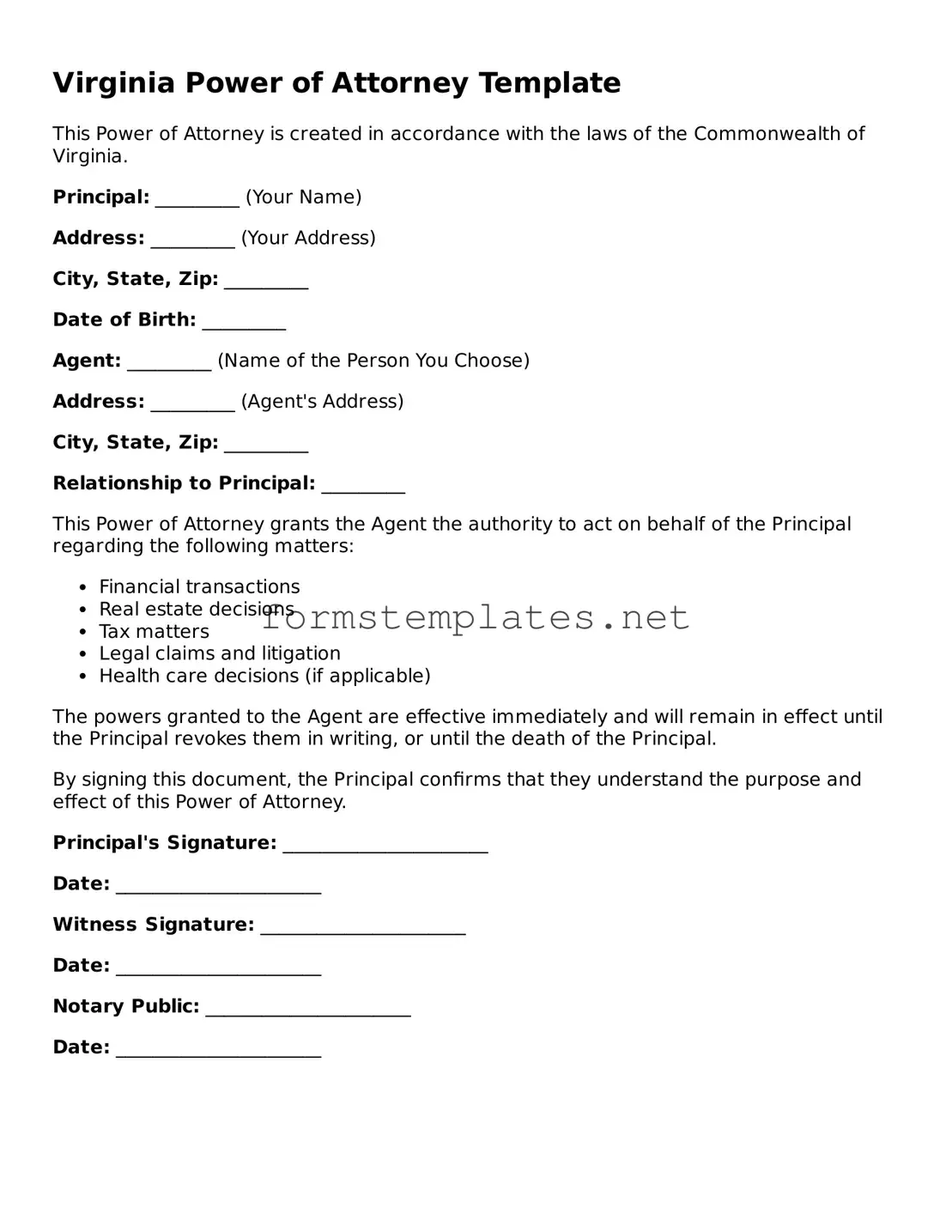Attorney-Approved Virginia Power of Attorney Template
The Virginia Power of Attorney form is a legal document that allows an individual, known as the principal, to designate another person, referred to as the agent, to make decisions on their behalf. This form can empower the agent to manage financial matters, healthcare decisions, or other specific tasks, depending on the principal's wishes. Understanding how this document works is crucial for anyone considering granting authority to another individual.
Open Editor Now

Attorney-Approved Virginia Power of Attorney Template
Open Editor Now

Open Editor Now
or
⇓ PDF Form
Your form still needs attention
Finalize Power of Attorney online — simple edits, saving, and download.